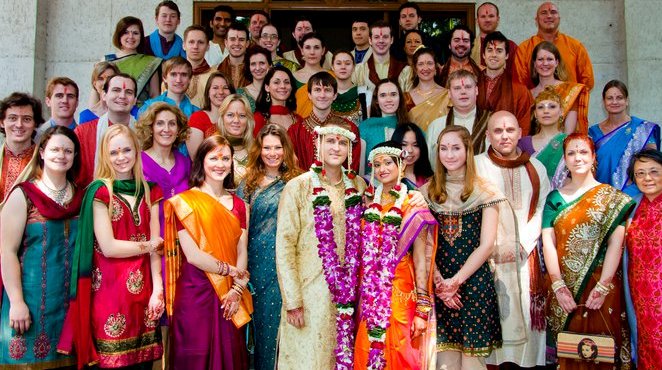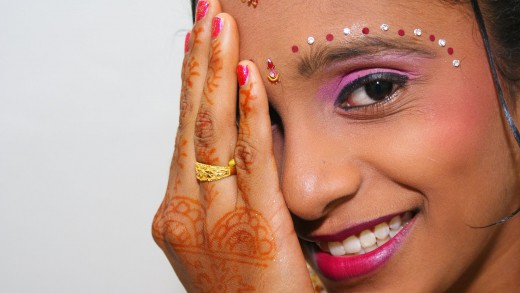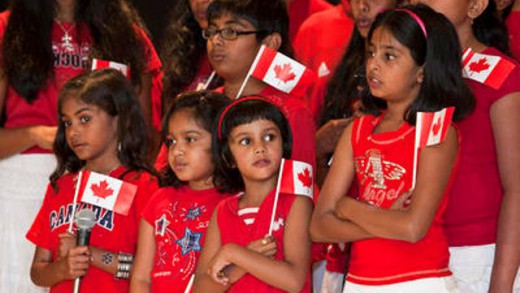The Tamil Test
How Tamil are you? Were you born in a country where your Tamil ancestors lived? Do you know how to speak, read, and write the language? Do you follow cultural Tamil traditions? Do you wear a saree or vetti to every function you attend? Do you eat with your hands? Do you watch Tamil movies, know the lyrics of Tamil songs and read Tamil books, magazines, and newspapers? Or were you simply born to parents who fit these criteria?
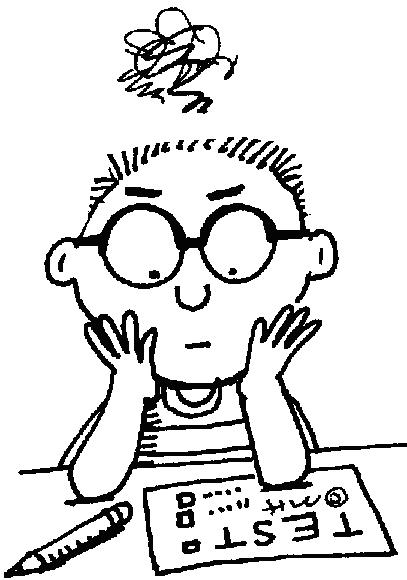
If you answered YES to all the questions above, CONGRATULATIONS! You are as Tamil as one can possibly be! But for every question you answer NO to, you slowly slide down this scale that measures your authenticity. Where does this scale come from? It is subconsciously constructed in the minds of certain individuals of the Tamil Diaspora who follow a set of ideals that they feel define a “real” Tamil.
Will the “Real” Tamils Please Stand Up?

The “real” Tamil comes from a group of people in the Tamil Diaspora who have managed to retain traditional Tamil ideals. Although not everybody in this group share this person’s view, the “real” Tamil feels superior to their counterparts who did not retain these same ideals. If you dress a certain way, then it’s not the Tamil thing to do. If you speak with a certain slang or accent, then you’re trying too hard to be “Black”. You’re trying too hard to be “White”. You’re trying too hard to be anything but Tamil. What is being Tamil anyways?
Something considered to be a Tamil ideal fifty years ago may not be applicable to Tamil culture today. For example, puberty ceremonies were held in the past to signify a woman’s readiness for marriage. Is that still the case now? (See Coming of Age) Culture is dynamic. It evolves over time. The only way culture can remain static is if it is not influenced by any external factors. For that to happen, there should be no interaction, trade or communication with other groups. Nothing! Picture that. As a result of migration, we now have hybrid cultures like Canadian Tamil, British Tamil, American Tamil, etc. These cultures are fusions of multiple subcultures. Is it really fair to judge someone and question their identity as a Tamil because they have adapted certain Western norms and customs?
Did I Pass the Test?
I was born in Germany. I know how to speak, read, and write Tamil through the teachings of my mom at home. I’m not the most fluent, but leave me stranded in a Tamil-speaking country, and trust me I’ll find my way around. I pick and choose the cultural traditions I want to follow. When I’m home, I go commando in a saram. Oh man, it’s so comfortable, don’t even get me started. I eat with my hands most of the time when it comes to Tamil food. But sometimes I don’t. When I feel like it, I watch Tamil movies, listen to Tamil songs, and read Tamil writings. And lastly, my parents were born in Jaffna. Did I pass the test? Did I? I have my fingers crossed!

I’m someone who falls just about smack dab in the middle of this imaginary scale. I try to maintain as much traditional Tamil ideals as I possibly could by living outside of my homeland. But I’ve also adapted to the Torontonian lifestyle and have adopted certain values that reflect it. Nonetheless, I’m damn proud of being Tamil. Aren’t you?
Live Tamil. Love Tamil.
Tamils come in many forms, shapes, and sizes. We don’t all look the same. We don’t all share the same viewpoints. We don’t all practice the same traditional ideals. Accept it. Deal with it. Most importantly, embrace it. Let’s stop fussing over issues like how one dresses, talks, or behaves. Let’s stop creating internal divisions in our community. And let’s break down these walls between us. Although I believe that every Tamil should make an attempt at learning about our ancestral roots and culture, practicing our language, and helping our community, one’s efforts or lack of it does not make them more or less Tamil than another. We are all equally Tamil regardless. Let’s learn to love each other for who we simply are. A Tamil. Nothing more. Nothing less.
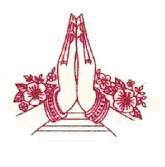
Nandri. Vanakkam.
The views expressed in this article are those of the author and do not necessarily reflect TamilCulture’s editorial policy.
For an alternative perspective, check out: “How ‘Ingilish’ are You?”

 Anu
Anu